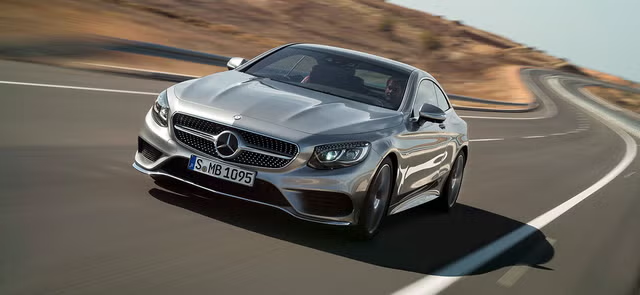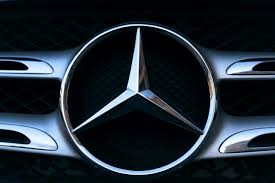
Australia’s PM faces criticism over purchase of A$4.3m beachfront property.
October 22, 2024
“CBN Confirms No Plans to Discontinue Circulation of Old N200, N500, and N1,000 Banknotes by December 31, 2024”
October 25, 2024
Mercedes-Benz reported a sharp 64% drop in third-quarter earnings for its core car division, a decline primarily attributed to weakened demand in China, its largest market. The Chinese economy has been grappling with multiple challenges, including a significant slowdown and a persistent real estate crisis. These factors have severely undermined consumer confidence, particularly in the luxury market, which has directly impacted sales of high-end vehicles.
Harald Wilhelm, Chief Financial Officer of Mercedes-Benz, responded to the disappointing performance by announcing plans to escalate cost-cutting measures. Wilhelm also pointed out that additional expenses associated with a model revamp—specifically the upcoming release of new versions of the G-Class SUV—further weighed on the company’s earnings during the July-September period. The costs of launching new models in such a challenging market environment exacerbated the financial strain on the automaker.
The challenges Mercedes-Benz faces in China are reflective of broader difficulties in the global automotive industry. China’s economic slowdown has led to reduced consumer spending, particularly on premium products like luxury cars. CEO Ola Kaellenius emphasized that Chinese consumers are increasingly cautious about making big-ticket purchases due to economic uncertainty and concerns about the country’s struggling real estate sector. “The economic downturn in China is making consumers more reluctant to make large purchases, and that has hit our sales significantly,” Kaellenius explained.
These issues are not unique to Mercedes-Benz; the entire global luxury car market is experiencing increased volatility. Mercedes-Benz has been forced to revise its full-year profit margin target twice during the third quarter, adjusting to a more conservative outlook as the demand for premium vehicles in China continues to soften. Other European automakers are facing similar difficulties, making China a critical battleground for the industry.
Adding to these economic pressures, Mercedes-Benz is contending with trade tensions between the European Union and China. Brussels has proposed tariffs on Chinese electric vehicle (EV) imports to Europe in an effort to protect local car manufacturers from being undercut by cheaper Chinese EVs. While these tariffs are designed to level the playing field for European automakers, they have also sparked concerns about potential retaliatory actions from China. Such measures could pose a significant threat to European automotive companies, which have long relied on the Chinese market for growth and profitability.
Mercedes-Benz, with major shareholders including China’s Beijing Automotive Group Co Ltd and Geely Chairman Li Shufu, has expressed strong opposition to the proposed tariffs. The company has urged the European Commission to delay implementing these measures, arguing that they could backfire by limiting European automakers’ access to the crucial Chinese market. Mercedes-Benz believes that a more diplomatic approach and extended negotiations could result in a balanced solution that benefits both sides without escalating trade tensions.
In response to these challenges, Mercedes-Benz is adjusting its strategic priorities. To safeguard profitability, the company is intensifying its focus on cost-cutting measures, especially within its high-end vehicle segment, which includes iconic models such as the G-Class SUV and the S-Class sedan. At the same time, Mercedes-Benz is investing heavily in innovation, particularly in the electric vehicle sector. The company has ambitious plans to expand its EV lineup over the coming years as it seeks to stay competitive in a rapidly evolving industry.
However, the company’s transition to EVs is not without obstacles. The global electric vehicle market is highly competitive, with Chinese automakers establishing a strong presence by offering lower-cost alternatives. In China, where local brands dominate the EV market, Mercedes-Benz faces the dual challenge of competing with both established luxury brands and emerging Chinese players. The company’s premium EV offerings will need to differentiate themselves not only through performance but also by delivering affordability in a market that is increasingly price-sensitive.
The sharp decline in third-quarter earnings underscores the complex and uncertain global environment in which Mercedes-Benz operates. The company must navigate a landscape shaped by slowing demand, geopolitical tensions, and the rapid transformation of the automotive industry. Looking ahead, Mercedes-Benz’s ability to adapt to these challenges will be crucial in determining whether it can maintain its status as one of the world’s leading luxury automakers.
Despite these headwinds, Mercedes-Benz remains committed to its long-term strategy of producing high-quality vehicles and expanding its footprint in the EV sector. The company hopes that by addressing immediate financial concerns through cost reductions while continuing to innovate, it can weather the current downturn and emerge stronger in the future. As trade discussions and economic uncertainties in key markets like China continue to unfold, the automaker’s financial performance and strategic direction will remain under close scrutiny.


